[Section Voices: World Congresses of Music Therapy]
Memories from the 10th World Congress of Music Therapy
Memories from Brian Abrams, USA
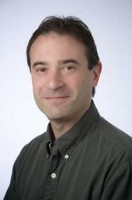
Primarily, my memories of Oxford involve visiting with good friends and respected colleagues (from whom I learned a great deal!), enjoying the breathtaking architecture on campus, wandering the lovely Oxford streets of outside of campus, enjoying rich English breakfasts, and outstanding British ales. I also sincerely enjoyed Evelyn Glennie's performance at the event.
Memories from Diane Austin, USA
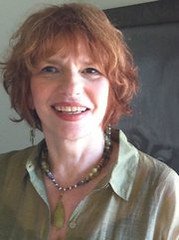
The World Congress in Oxford was one of my favorites. The beautiful and historic atmosphere, the wonderful gathering of so many well known and gifted music therapists and the fun activities that were planned for us, all added up to make this a great congress and one I will never forget! I shared a delightful apartment with Terry Watson and friends like Janice Dvorkin and Adva Frank-Schwiebel were close by.
The presentations were of a high quality. I remember my presentation because I was nervous about presenting it, “Singing with the Opposite Sex: Sexual Transference and Countertransference in Music Therapy.”I remember walking out afterwards and hearing someone say, “ Oh, those Americans!” It was exciting speaking in that beautiful hall packed with my colleagues and colleagues to be.
Another event that I loved was the mock debate on the topic “Music Therapy in the 21st Century: Dead or Alive.” Leslie Bunt was the judge looking very austere with his long beard (he was really scary in his role)! Gary Ansdell was on the side of the death of music therapy and was hilarious. Denise Grocke was on the other side and so was I. I can’t remember the others but they were all amusing actors. The debate ended with my singing an evangelical song and “healing “ Noah Shapiro. The whole hall was singing rapturously by the end of the debate so our side won. Such fun!!
Memories from Ruth Bright, Australia
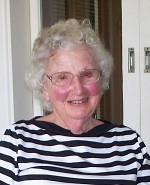
Because I grew up in a village not far from Oxford(I moved to Australia with my parents when I was 18 years old), I knew the city quite well - so that I did not need to consult maps at every step, but knew were various venues for sessions would be, and how long it would take me to get there. (Although this depended on how many times I stopped to look at this or that, recalling past visits!)
My husband and I stayed at Keble College, and it was fascinating to find that – in the Chapel – there was an early version of the famous painting of Christ knocking at the door, painted when Holman Hunt was in hits thirties. (Because we always start the day with a ‘quiet time’, we did this in the chapel, with that picture as an inspiration.)
It was fascinating to see so many students around town formally dressed in preparation for examinations, I had not expected that this convention would still hold – everyone in black and in formal clothes such one usually associates with ’posh’ wedding receptions!)
The formal opening of the conference was surprising in that a key speaker was not a music therapist; most of us from Australia had assumed that we should have presentations which all focused on some aspects of our professional work, but the speaker was indeed eloquent!
I gave a research paper on separation: how music therapists prepare for, and deal with separation from their ‘clients’ /‘patients’. (Many years ago, when the using the term ‘clients’ first became ‘correct’, I was lecturing in Spain, using an interpreter, and used the term’;clients’. I got some very strange looks from the interpreter and she told me later that the word was used locally only to refer to a man patronising a brothel – which is NOT what I was talking about!)
One section of the paper focused on how music therapists feel when they arrive at work to find that a person, with whom their own work was far from complete, had been discharged without any discussion about the music therapy aspect of their care. Very lively discussion followed the paper!
I was also chairing a session, and - while talking beforehand with the various speakers – one of them told me that he spoke in English only for special occasions, and although he felt competent to give the paper, he did not feel competent to answer questions from the audience in the theatre. He did feel OK, however, about having private discussions with people afterwards in private.
I suggested to him that I should allow him to fill up his entire time with the paper, and then say “Unfortunately we shall not have time for questions, but Dr ... will be happy to discuss queries with you in the break afterwards.” (Probably some people in the audience were shocked that I allowed him to go over time, without time for discussions, but this little scheme worked!)
The Oxford WFMT Congress was, I believe, very successful, with useful papers presented, plenty of time to meet people for both personal and professional conversations, and the pleasure of meeting in a city with such important academic and historical associations – as well as the joys of the riverside walks and the botanic gardens.
I am sad that, today, the finances of retirement prevent me from attending world congresses, but I have wonderful memories of the past!
Memories from Jennifer Dixon, USA
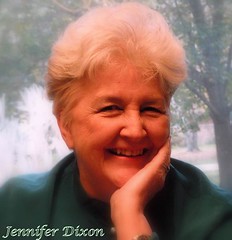
I have very fond personal memories of attending the World Congress of Music Therapy in Oxford. I was so thrilled to find out that I could stay at St Edmund’s Hall (known as Teddy Hall). That was the college my Dad attended in the late ‘30s. I was able to get transcripts of his degrees and correspondence in his own hand from the bursar’s office! Best of all was that I walked in his footsteps and remembered the stories he told and was able to feel him all around me.
I stayed there with a good friend and colleague Margaret Furioso and attended her research session on Music Therapy and Breast Cancer. One of the highlights of our attendance was being introduced to Evelyn Glennie’s amazing talent and seeing this sprightly young person in her bare feet entertain at a fascinating concert in such hallowed surroundings. Just wonderful! How surprised to find out how much she had overcome in the pursuit of exploring her musical talents. Another huge highlight was the Debate in the Oxford Union with Leslie Blunt and an opponent. We had such a laugh—Leslie really tickled us with his very British, Oxford Union style of debate!!
It was great meeting and greeting members of our profession from around the world and learning so much from all of them.
Memories from Jane Edwards, Ireland
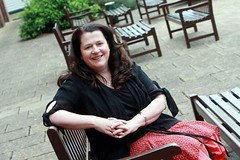
What a great conference this was! I remember the exceptional buildings and the lovely atmosphere. I stayed in St Catherine's College. Every night at the evening meal Mechtild Jahn Langenberg and Even Ruud sat at the main chairs at the high table and they seemed to me like the King and Queen of music therapy. I loved the concerts; one with Evelyn Glennie and one with Julian Lloyd Webber. Such fantastic live music.
The social marquee was a big hit but it was also great to swarm out into Oxford and take in the atmosphere of a pub – sharing a glass of beer with Michele Forinash in a tiny rather crowded noisy Oxford pub remains a warm memory.
Many people will remember the debate Chaired by Leslie Bunt in his academic robes: Music therapy: Phoenix or Dodo? I received a great compliment by being asked to participate in both teams; one Chaired by Amelia Oldfield for the affirmative, and the negative team Chaired by Denise Grocke. I spoke for the negative. Brynjulf and Trygve were on my team and kept asking what they were to do. I remember realising in a way that I hadn't quite understood before that education in Australia has deeply ingrained British roots. I had always participated in debating teams and inter-school competitions. Just say everything the opposition says is rubbish, I advised as a kind of shorthand. So Trygve stood on a chair at the start of his rebuttal, pointed at the opposition and said “Everything they have said is rubbish” to roars from the crowd. I remember so much laughter. In my rebuttal I suggested we should stop having World Congresses so that we could hold a Universe Congress to which music therapists from other planets could attend. I think between both teams we whipped up mass hysteria, especially when Diane Austin closed our team's contribution with an irreverent gospel rally during which Noah Shapiro appeared on the stage in bandages to be 'healed' by music therapy. Oh dear!
I attended committee meetings for the World Federation as I was Chair for the Commission on Government Accreditation at that time and as a result always seemed to be running between venues and finishing sentences half done with people I was meeting for the first time. Sorry folks. Part of my busyness was that I had taken on Directorship of a project to development the allied health therapies back in Limerick and was on the phone to the building project architect for what seemed like at least half of the congress.
I have been back to Oxford since as I have friends there. I love remembering the great times had at that conference.
Long may we be able to meet around the world to enjoy the company of other music therapist.
Memories from Lia Rejane Mendes Barcellos, Brazil
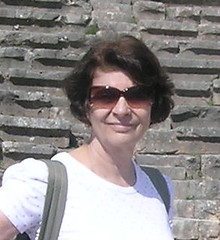
The 10th Music Therapy Congress was the seventh world congress in which I participated and presented my papers, either related to clinical practice, to the graduation area, or dealing with theoretical issues. But this congress awakened in me a particular expectation, for it was to be gathered in the famous Oxford University.
Before the official opening, the World Federation Symposium on Experiential Training in Music Therapy was held, which was organized by the music therapist Barbara Wheeler, Ph.D. I joined this introductory event with the presentation of my research, “A Student’s Experience of Experiential Music Therapy – A Phenomenological Qualitative Research Study”, achieved from 2000 to 2002 at the Conservatório Brasileiro de Música [Brazilian Conservatory of Music] in Rio de Janeiro (Brazil). It must be stated that this was an extremely important initiative, for the center of discussions chosen focused on an activity I consider fundamental for the building up of music therapists. Professionals from various countries presented their contributions on the different formats of performance adopted for the aforementioned activity in the courses responsible for the graduation of new music therapists in their own lands and all the papers presented were later published by Barbara Wheeler.
During the Congress opening I was greatly impacted by the lecture given by the music therapist Brynjulf Stige, PhD., who presented himself as coming from a hinterland Norwegian town, where he worked with music therapy in a community of wealthy people!...... As soon as the first impact was over I tried to understand what had felt so strange to myself. I could only reach the conclusion that usually in Brazil, when we speak of working with communities, immediately we think of poor neighborhoods. Certainly this difference springs from the distinct realities existing between both countries: Norway and Brazil. Recently I have caused a similar impact in another event about communities, the latter held in Brazil, when I referred to this moment I lived through in Oxford. But after long musing about the issue, I realized that among us work is also performed within wealthy communities, like that started in a ‘support home’ for a Jewish women clientele or in the ‘therapeutic choir group’ formed by Japanese women.
Another fine experience was that of coordinating a room for the presentation of papers on ’Professional Issues and Music Therapy’. Here I had a chance to observe and concentrate in the idiosyncrasies of the several presentations by each lecturer or group spokesperson, mostly derived from cultural differences; and also on the variety of application techniques in music therapy and, most of all, on the music context emerging from each paper. Such an experience should be granted to every music therapist.
During the Congress held in Washington, D.C., back in 1999, I was elected as a member of the Directive Board of World Federation of Music Therapy – WFMT, for a second term, being appointed a second time to the office of Chairperson for the Clinical Practice Commission and thereby being given the task of performing a survey, during the next three years, on the ‘State of the Art’ of the worldwide clinical practice of music therapy which was supposed to be presented in Oxford. Thus, in the last WFMT meeting, when the Oxford Congress was reaching its closure, all the commissions presented the results of the assigned tasks, which was in my case the outcome of said survey, with data collected from replies sent by 26 different countries – among those many where music therapy is performed – to the following 10 questions:
- Who practices music therapy in your country?
- Are music therapists in your country trained by (different kinds/levels/courses)?
- Is music therapy required in your country?
- In which areas is music therapy practiced in your country?
- What types of institutions make music therapy available in your country?
- Which are the main musical experiences/procedures used in your country?
- What are the main theoretical approaches used there?
- Which are the most used musical instruments?
- Is music therapy practiced in groups or individually?
- Are there publications about music therapy in your country? Which kind?
The data statistics was manually handled and its results presented to the music therapists who attended the meeting. This survey achieved to supply the Congress members with a partial idea on the situation of music therapy clinical practice around the world.
Nevertheless, some situations always occur in these congresses that make up for stories within our own story! It could not have happened otherwise in Oxford. During one of the Congress days, the Brazilian music therapist, Maristela Smith, and I, took a break during our lunch hour to walk around the city. We strolled down to the market, where we bought and ate wonderful peaches and then the time was coming for our return to the Congress. Soon after we arrived, we took a couple seats to decide on which feature we would watch next. We began to examine the presentation book but, before choosing among the many options that were being offered, we began to hear nondescript sounds that resulted into a sonorous mass of a reasonable intensity. Right away we decided not to attend the reading of any papers, but go instead to this ‘workshop’ whose whereabouts we didn’t know of. But there was no call to open up the agenda again to find its location. What were our own ears for, if not to guide us into that blessed place? And so we did. We just followed the increasingly strong sound. And step after hurried step we arrived to… the kitchen! What we had overheard was the noise of dishes and cutlery being washed!!!!!!!!!!!!!!!!! O my, that was quite an experience! And it was really an excellent Congress! My compliments to the organizers.
Memories from Nicole Rivera, USA
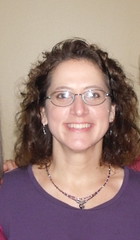
My visit to the 10th World Congress of Music Therapy was my first experience traveling abroad to a music therapy conference. It was a phenomenal experience because of both the conference and surrounding community. The conference focused on three broad themes: Music, Culture, Social Action; Music, Spirituality, Healing; and Music, Meaning, Relationship. The presentation style of reading formally written papers was much different than that more informal talks and workshops that I had experienced in the United States. I recall hearing many papers that were informed by broader theoretical constructs with a stronger emphasis on psychodynamic and humanistic models. At one point, I remember feeling anxious about my own paper, Music Therapy and Sensory Integration for Children with Autistic Spectrum Disorders, which focused on more neurological foundations. I was anxious about how the paper would be received, but the feedback and questions from the audience were positive.
Music was definitely a highlight of the conference. The opening night concert featured virtuoso percussionist, Evelyn Glennie. Later in the conference, we were treated to an extraordinary performance by cellist, Julian Lloyd Weber. Both concerts were riveting. Another treat was being able to participate in Evensong in the chapel at Keble College. It was lovely to participate in the local traditions. Most nights also featured spirited sing-a-longs in the college gardens. I am including a picture of a dance concert at the congress. [insert picture of dance]
The community was also a rare treat. I stayed in Keble College. We ate elegant meals together in a formal dining hall with long tables that rivaled the images of the dining halls in Harry Potter. Some of my favorite memories of the local community included visiting the Oxford Botanic Garden, taking a late night walking ghost tour, and seeing a production of one of Shakespeare’s plays in the garden of one of the local colleges. Spending a day taking in the sights of London was a perfect way to end the trip before returning home to the United States.
Memories from Jacqueline Robarts, United Kingdom

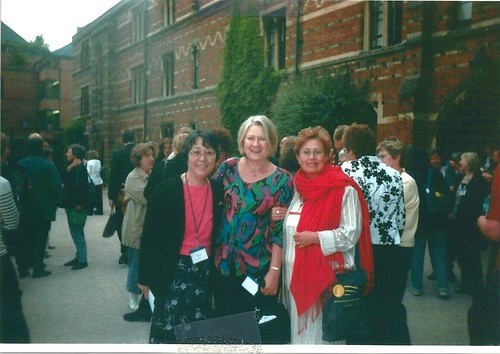
The Oxford World Congress of Music Therapy is as memorable for the setting as for the vibrant gathering of music therapy souls. Some quickly sketched reminiscences...
1. Keble College was the main residential base for the conference, with its imperious 19th century neo-gothic architecture surrounding a broad greensward criss-crossed with pathways...I feel I am now lapsing into 19th century English! We were greeted by Morris dancers (a particular branch of traditional English folk dance, involving just men, bells tied around their shins, boaters with brightly coloured ribbons, a pulsating beat of feet with the regular clatter of the wooden truncheon-like batons in a formal line then circle of dancers..oddly enough, it reminded me of a similar dance I once witnessed for Diwali celebrations, the only big difference, apart from the music, being that it was danced in two concentric circles, one for men and one for women...and, rather in the spirit of the English dance, called the 'Paul Jones'..and specifically designed for young people of opposite sexes to meet). But I digress.....hot sunny day, delegates beginning to arrive and marvel at the place, greet one another, make arrangements, search for their accommodation, a drink, where to eat....all the usual basic settling in.
2. Keble's Dining Hall was the setting for scenes of Harry Potter and Hogwarts . That in itself brought a further 'frisson' to the whole conference experience.
3. I recall the months of meetings and preparation, the organisation that such a conference demands: Leslie Bunt and Gary Ansdell in particular worked tirelessly to make the event the success it was. I was a member of the Scientific Committee that year and had some input to the overarching theme of 'diversity and debate' in music therapy, but I have to confess ending up feeling quite controversial about the outcome....once again, music therapy being divided up into categories of different perspectives, with 'Nordoff Robbins' being allocated...for one of the first times this happened, but now quite usual....a separate category, and defined in ways that I did not recognise and still do not recognise as the work I trained in way back in the 1980s, nor have since.
4.Yes, the multiplicity, the diversity of music therapy was the main theme of the conference, which admirably demonstrated this in the range of papers.....but I often feel that the central issues in music therapy are not sufficiently debated in print. Sharing ideas can be both harmonious and discordant....I like both! I remember presenting a paper on work with sexually abused children, in which improvised song creation in music therapy was at the heart of the clinical process. I valued the insightful discussions with Diane Austin, Sandra Brown and Pauline Etkin afterwards. This kind of connecting and sparking off of ideas was for me one of the best aspects of this conference, and indeed most World Congresses in the 1990s. I think this was the last World Congress of Music Therapy that I attended, needing/wanting to focus more on interdisciplinary conferences and smaller symposia. Music therapy conferences are sometimes like the Tower of Babel, and I can only manage so much of the diversity and differences of music therapy perspectives, terminology, approaches and want to focus rather on informing the areas of work and the kind of clients that interest me, and from a more inner space where my paths of professional work have taken me.
5. The Sheldonian Theatre ....an imposing 17th century rotunda building after a design of Sir Christopher Wren....was the venue for keynote speakers, which included Dr Anne Alvarez, an internationally celebrated child psychotherapist (Canadian, but living and working in the UK), known for her innovative and erudite, sensitive and insightful understanding of interlinking clinical and theoretical perspectives. She was one of the first people to bring psychodynamic and developmental thinking together and to look for the normal development within the atypical. I was the respondent for her address, and enjoyed many stimulating and helpful email exchanges leading up to the event. There was an interesting and delicious lunch afterwards. In the background, as always, there was controversy about why there were not more music therapist keynote speakers rather than inviting distinguished people from outside our profession...certainly a valid point of view, but I felt we needed to hear from people from outside as well as within, to bring the interdisciplinary perspectivs to the profession again now that we had developed to a point where we could truly derive mutual benefit at new levels of understanding. These "outsiders" with their own professional perspectives on music therapy, were people who had already made important links with and for music and music therapy.
6. Room share: always part of the conference scene. Barbara Wheeler and I shared a room in a somewhat disappointing modern section of the college..but as from previous experiences of being Barbara's "roomy" you know you are hardly going to see her in the room at all! ..She has a raft of meetings, committees, round tables to attend for national and international music therapy associations. There are editorial matters to attend to, past, present and future. She is among music therapy's foremost contributors to the profession. I call such people the "dynamos'"...the people who drive the profession forward in so many different directions. I am amazed by their energy, organisational powers, commitment to the profession internationally. I recall meeting up with other international colleagues: Diane Austin, Nobuko Saji, Gabriella Perilli, Suzanne Hanser....all of whom are teachers, trainers, clinicians, researchers, writers. And they seem to be active in these ways ALL of the time. How is it I can manage only two or three simultaneously, I wonder? A marquee on the lawn provides a relaxed almost nightclub atmosphere for evening meetings, to plan, chat, reminisce. Two years previously in 2001 I was given a most wonderful introduction to Japan by Professor Saji, which marked the beginning of my many visits to Japan to teach clinical studies, supervise, teach improvisation workshops which I loved doing with large groups of enthusiastic Japanese musicians and music therapists. So this congress like many others forms part of that good old cliche "a rich tapestry" whenever conference delegates meet, and this I found perhaps the most rewarding and memorable aspect of the Oxford Congress. Also, last but not least, another historic event: I met up with Canadian Cheryl Sidenberg Beggs for the first time since we trained together on the NR training course, and still regret to this day that we managed only one meeting during the conference, as I got caught up in Oxford traffic and missed our appointment. I went to Cheryl's excellent and very touching presentation on her work with clients with cancer. That was special.
Memories from Deborah Salmon, Canada
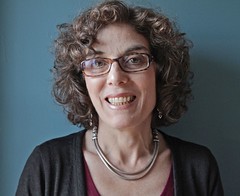
So many wonderful memories and impressions of the 10th World Congress linger still. The cobble-stoned streets of Oxford with their palpable sense of history; how many students had walked those streets before me! The Harry Potter-like dining halls with their long tables and sumptuous meals shared with friends old and new. The keen sense of excitement, exchange, camaraderie, ideas and music! From the spectacular opening night percussion performance of Evelyn Glennie through the many inspiring presentations, and nervous excitement of my own offering on the impact on music therapists of working with dying patients, to the closing strains of haunting cello. I returned home with a beautiful hand-made wood sounding bowl and the sense of being part of something truly incredible.
Memories from Gabriela Wagner
As I remember the scene of the 10th World Congress of Music Therapy, Dialogue and Debate, I must recognize that its location was certainly an additional attraction. Accommodations in Oxford reminded me some of the happiest days my youth and the important musical options contributed to enjoy a special climate of aesthetic and spiritual pleasure.
It was the beginning of the 21st century. The inclusion of the computer for a deeper analysis of clinical music therapy improvisation on one hand and the reconsideration of the spiritual musical sensitivity and its healing effect one the other side, were some of the contributions to a paradigm shift process about the role of music and its possible positive results. Our multicultural world also required innovative and creative responses to face new challenges.
Very many good memories come to my mind and I still smile when I remember the debate about the next 50 possible years of Music Therapy "Phoenix of Dodo". Thanks to some talented quasi actors like Leslie, Denise and all the others, we had a great fun wondering about our future. Argentina presented a proposal to host the 11th WFMT Congress. We all know that finally this event was held in Brisbane, Australia but the previous work turned out to be exiting and unforgettable for the Argentine delegation.Memories from Barbara Wheeler, USA

I shared a room in one of the Keble College with Jackie Robarts from London. I always enjoy Jackie’s company, and this was no exception. My dear friend and colleague, Sylvia Stultz, also attended the congress with her teen-age daughter, Jill.
Sylvia and I had been working for several years on a research project in which we were comparing videotapes of children who were developing normally with tapes of children with multiple severe disabilities whom I had worked with in music therapy. This was the first time that we presented our work in a “finished” form. Our presentation was titled “Musical Relatedness in Infancy as a Resource in Understanding Children with Disabilities” and included videotapes embedded in the Powerpoint slides. It was technologically more difficult than I had done before, and I was very pleased with the way that we were able to present the material. The same work was later published as: Wheeler, B. L., & Stultz, S. (2008). Using Typical Infant Development to Inform Music Therapy with Children with Disabilities. Early Childhood Education Journal, 35, 585-591.
I was Chair of the Commission on Education and Training, which sponsored a symposium prior to the congress. The title of the symposium was “Experiential Learning in Music Therapy,” and a number of experts representing various viewpoints and with many different experiences presented. The symposium was summarized in an article (Murphy, K. M., & Wheeler, B. L. (2005). Symposium on Experiential Learning in Music Therapy: Report of the Symposium Sponsored by the World Federation of Music Therapy Commission on Education, Training, and Accreditation. Music Therapy Perspectives, 23, 138-143) that is linked to here (link to article), with permission of the American Music Therapy Association. The proceedings of the symposium are available as part of the congress proceedings on the World Federation of Music Therapy website, beginning on page 1829.
I don’t have many personal memories of this congress. I do know that it was very exciting being in the stately Oxford campus. I remember the meals at the long tables. There were very clear “rules” for these meals – who would serve, for instance. I was impressed that some of my colleagues, from the UK, I believe, had gone to boarding school and followed these same rules. They were all new to me!
Memories from Claudia Zanini, Brazil
Attending the World Congress of Music Therapy (Oxford, 2002) was a very important event in my life as a music therapist.
I was just defending my dissertation, defining a term - Therapeutic Choir - as a proposed role of music therapist in working with groups. Thus, presenting the fruit of my research in oral communication, sharing the event with Brazilian music therapists present, and having the chance to meet music therapists who until then I knew only through articles and books was very motivating.
Moreover, the entire organization on the congress, its scientific and social program, provided many moments of growth and joy. The knowledge was important in my career as a music therapist and professor of Music Therapy in college.
One memorable moment for me was the “Candlelight Vigil for Peace”, organized by Edith Boxill, when all music therapists from various countries present came together in peace around the world, with lighted candles, songs of love and peace, all in a circle with lots of energy. It was wonderful!


